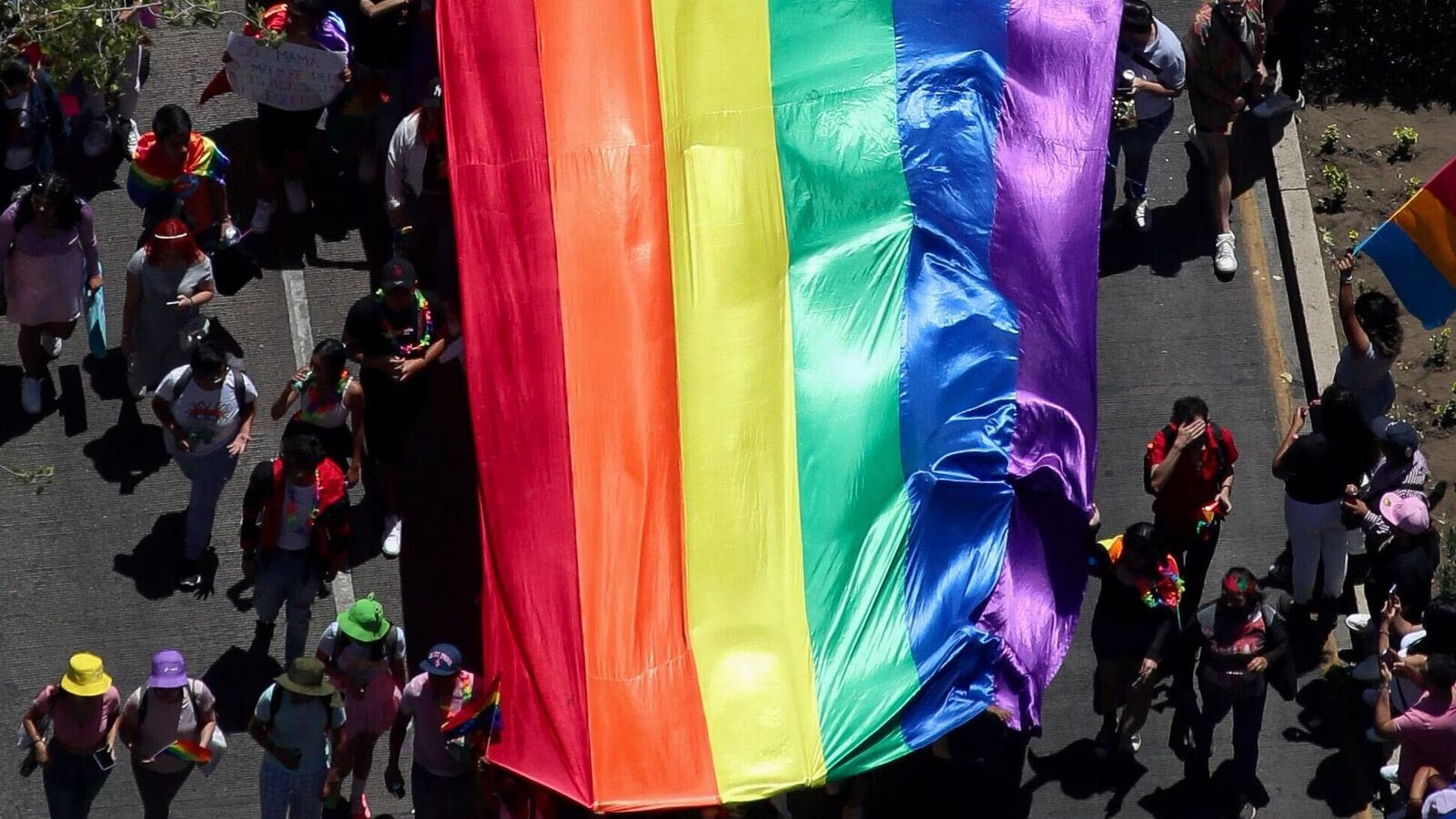However, since the opening of the Queer-Trans Wellness & Support Center (QT Center) in April 2023 in Habsiguda, Hyderabad, Sastri has found solace. The QT Center has provided a welcoming space where Sastri can comfortably enjoy activities such as film screenings and book readings without any prejudice.
“QT Center is a sanctuary for everyone—a place where you can sit, have tea, and simply feel at home,” says Sastri. “They offer free services, including therapy sessions that were immensely helpful when I became a new parent, dealing with postnatal stress and anxiety. Without a queer-affirming therapist, my experience might have been dismissed or ridiculed, but the center provided the support I needed,” Sastri adds.
For individuals like Sastri, who identify within the LGBTQI+ spectrum, the QT Center has become a vital refuge, offering mental health care, artistic expression opportunities, and a place to relax. In collaboration with local NGOs, the center also organizes health camps for the community.
A Sanctuary Born from the Pandemic
The QT Center is an initiative by Yugantar, a 43-year-old NGO in Hyderabad, led by local queer individuals. According to its website, the center is backed by an advisory board of feminist and human rights organizations, queer lawyers, activists, and academics.
“Wellness encompasses justice and equality. Having access to safe housing, healthcare, nutritious food, rights, and resources, and being treated with dignity in society are crucial aspects of wellness,” explains Tashi Choedup, a core team member at the center.
The pandemic highlighted the need for such a center. “COVID-19 disproportionately impacted the queer community, increasing isolation and exacerbating existing vulnerabilities. Many LGBTQI+ individuals found themselves in non-affirming or hostile home environments due to lockdowns,” says Aditya Raja, another core member.
The closure of queer-friendly spaces and the lack of access to public areas further strained social support networks. Additionally, economic instability hit the community hard, with many LGBTQI+ individuals employed in sectors like hospitality and entertainment, which were severely affected. “The pandemic intensified the marginalization faced by the queer community, underscoring the need for inclusive and resilient support systems,” Raja notes.
Comprehensive Support for Holistic Wellness
The QT Center offers essential services such as mental health support, legal aid, a 24/7 helpline (+91 88975 33014), crisis intervention, and a safe hangout space for queer individuals.
“Wellness must address underlying causes, whether related to physical or mental health. For example, economic difficulties can lead to depression. A holistic approach, addressing both therapeutic support and stable employment, is necessary,” explains Raja.
Rachana Mudraboyina, a transgender rights activist and member of the center, emphasizes the need for education and upskilling for the queer community. “Education provides empowerment and better job prospects, essential for overcoming discrimination and marginalization,” Mudraboyina states. She also highlights the importance of digital accessibility to bridge gaps in traditional education and promote inclusion.
Ensuring Accessible Mental Health Care
The center acknowledges that traditional mental health care often caters to privileged groups, leaving marginalized identities underserved. In partnership with Pause for Perspective, a local mental health organization, the QT Center offers services specifically tailored to these communities. “Our service is free, and anyone can call us at any time. Cases are forwarded to the appropriate specialist based on the need,” shares Raja.
“Our primary aim is to make mental health care accessible by addressing language barriers. While mental health discourse often centers around English, we believe it is crucial to provide services in native languages. We are exploring ways to implement this,” explains Aarathi Selvan, founder of Pause for Perspective. “Additionally, we aim to make mental health care accessible to marginalized queer individuals, adopting a community-driven approach,” Selvan adds.
Community-based initiatives at the center include weekly group sessions that incorporate storytelling through books, art, and movement. Topics explored include ‘the meaning of chosen family,’ ‘conflicts with native families,’ ‘experiencing queer joy,’ and ‘grieving the coming out process.’





